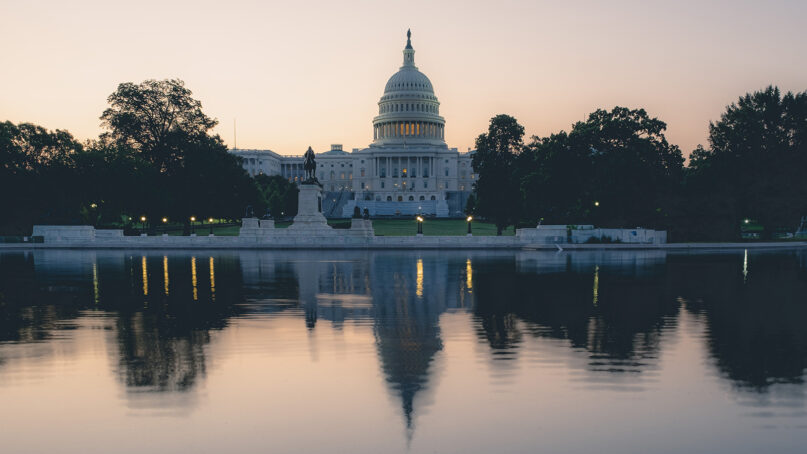(RNS) — American politicians are fond of using Christian language and imagery, reflecting their overwhelming Christian roots: 88% of the current Congress claims to be Christian, of whom 27% call themselves Catholic Christians. But these politicians rarely match their speeches with legislation that promotes the fullness of human dignity, the sanctity of human life, protection of the most vulnerable and the care of creation.
Many political leaders who identify as Christian, including those who would like to insist that the United States is a Christian nation, founded on Christian values and principles, actually propose policies that are directly defiant to the teachings of Jesus Christ.
The current House Appropriations Committee is once again targeting substantial cuts at programs for the poor, the hungry, the marginalized. Cuts in food programs for women, infants and children, in educational and job training programs and health care programs are happening almost entirely behind the scenes. There is a notable lack of investment in job training programs.
The cuts are affecting our policy on the environment, which increasingly impacts the vulnerable. These are alarming, given the transitional nature of the economy and the severe effects of climate change felt this summer. As temperatures break records and climate-driven catastrophes become a near daily occurrence, plans are underway to cut back the Environmental Protection Agency’s budget to pre-1990s levels.
Environmental changes, along with war, are driving migration around the world, but the United States continues to resist the comprehensive immigration reform that could address the current labor shortages in many fields without contributing to more exploitation of the workforce.
It would be fair to ask our elected officials how familiar they are with the scene of the final judgment in the Gospel of Matthew, when Jesus says we will be faced with what we did to feed the hungry, help the imprisoned and dispossessed and welcome the stranger.
Instead of being concerned about whether and when we noticed Christ hungry, the Center on Budget and Policy Priorities sees plans to reduce food security for some 5.3 million young people. Instead of providing shelter and a welcome to those escaping war, exploitation, violence and starvation, the U.S. is keeping people at the border and assessing whether they qualify for a place in an antiquated system.
Among those who would claim the desire to serve Jesus Christ in the “least of his sisters and brothers” even the Legal Services Corp. is seeing a 13% cut in funding, which will deny many of those who have no means to secure legal counsel to be open to exploitation by those who face no such lack.
When Pope Francis became the first head of the Roman Catholic Church to address a joint session of Congress in 2015, he celebrated the history of a democratic nation that has flourished because of its promotion of the common good and its upholding of basic human rights, however shortsighted and imperfectly, throughout its history.
The pope wasn’t advocating that we create a theocracy. But he was clear to say that people of faith should be free to express their views on political matters and should not hesitate to attribute their motivation for engagement to the teachings of their faith. In a pluralistic society, people of faith will express their views in the midst of many others and must be ready to explain how their positions contribute to the common good.
In such a society, churches and other faith-based organizations have a duty to assess laws and policies for an essential morality and how they affect the poorest among us. The principal question for the faithful should be whether a policy or a law contributes to the common good or is for the exclusive benefit of a select few.
A prime example concerns the expenditures of public funds. Faith leaders should never tire of reminding the public that a budget is a moral document. What is prioritized in a budget reveals the values of the society — no less when the values its leaders articulate are contradicted by the patterns of spending.
As people of faith, it is time to pay more attention to the sausage-making process that results in our laws and especially in the budget-making process for the expenditures of our money. The national organization Catholics Vote Common Good is carefully tracking and calling attention to proposed federal budget cuts that are contradictory to our values. We are asking, Do we really want Christian values to prevail? Or is the goal of cutting taxes for the wealthy the highest priority?
Jesus had little time for hypocrites; he calls for a consistency in living the values that we espouse in our houses of worship. May the faithful be as cunning as serpents and as gentle as doves when it comes to our national priorities.
(The Most Rev. John Stowe is the Roman Catholic bishop of the Diocese of Lexington, Kentucky. The views expressed in this commentary do not necessarily reflect those of Religion News Service.)





